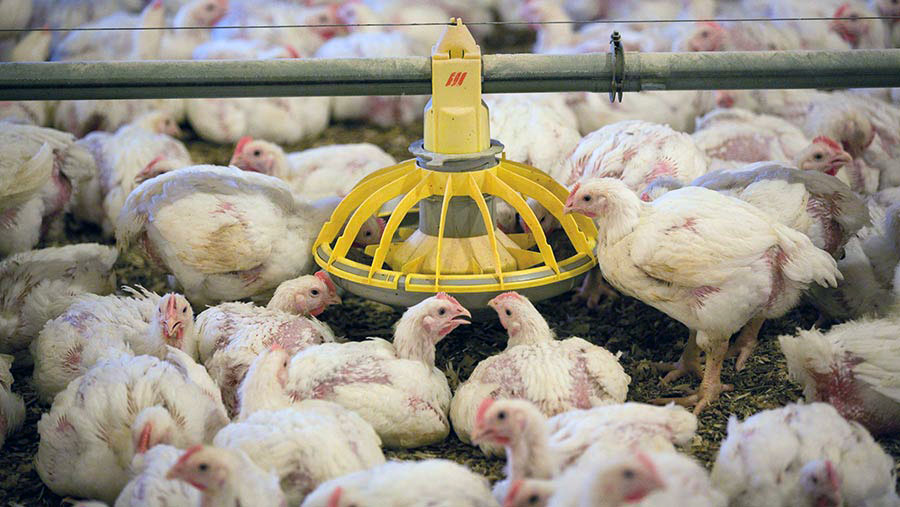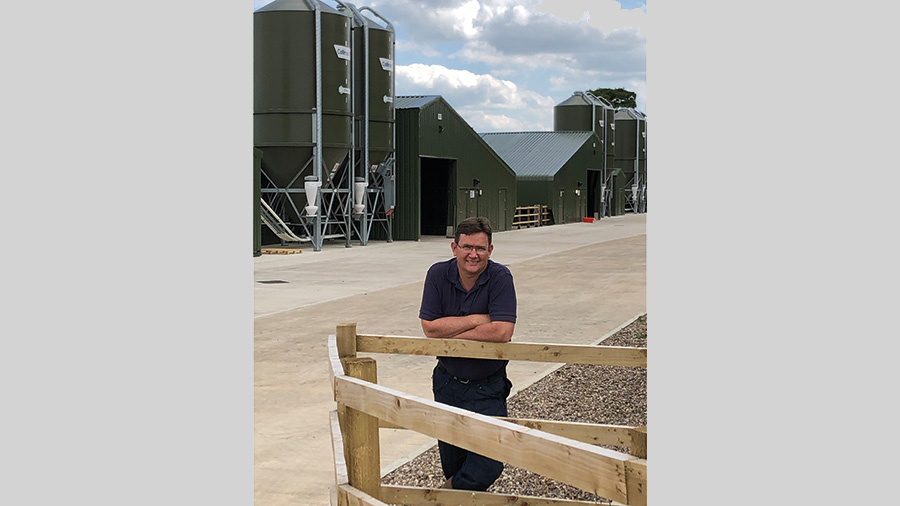Farming careers: Working as a poultry manager
 © Tim Scrivener
© Tim Scrivener Ed Wilson, 49, is the manager of a 180,000-bird poultry unit in Lincolnshire that supplies a large processor. He grew up in Malawi and is not from a farming background, though his father worked in fisheries and Ed helped out a cattle farmer family friend during the school holidays.
After attending secondary school in Suffolk, he completed an agroforestry degree at Bangor University.
See also: Farming careers: From tractor driver to assistant farm manager

Poultry manager Ed Wilson © Ed Wilson
Prior to poultry farming, his career included researching tree planting habits for the Forestry Commission in Zimbabwe, working in tree nurseries in Mali, helping local farmer associations with forestry in Burkina Faso, and supporting Aid for Africa in Uganda.
Living in Africa stimulated Ed’s love for poultry, as locals gave him chickens as gifts. He began building up his flock, learning as he went, and selling eggs and chickens as a hobby.
Returning to the UK with his wife and children, Ed spent several years working as a production superviser and development manager at various hatcheries, teaching at training provider Poultech and as a relief poultry manager.
Last year he spotted a Ceres Rural advert in Farmers Weekly for a site manager position and decided to apply, starting the role in December 2021.
Each day, Ed starts at about 7.30am, checking the birds in the four sheds and ensuring the automated Fancom management system (heat, lighting and feed) and cameras are working.
He records the data for the birds against the ideal profile to check their progress and keep an eye on how they are doing.
Other jobs include completing feed orders, sending the broiler weekly return to the processor to plan slaughter times, and maintaining the sheds.
Following an afternoon break, Ed returns to carry out the night check. He is on call 24/7 – with a relief manager available for any time off – and an automatic alarm is sent to his work phone if there are any problems.
He says the job offers good security and satisfaction, as well as a motivating good-performance bonus and accommodation.
“It’s a really good job for a doing person because I don’t want to sit at a desk all day,” he said.
“I like chickens and I like rearing livestock and it’s good to be able to manage my own time and have responsibility.”
Job profile
What does the job involve?
Poultry managers need good livestock husbandry.
They will have to grow young chicks into adult birds, hitting production targets and bringing the birds into the best of health during that period.
Other key aspects are good environmental management of the building and attention to detail on animal welfare, good record-keeping, excellent site hygiene and biosecurity, compliance with health and safety and legislative schemes involving safe working practices, and responding to alarm calls that might go off in the building.
]Fundamentally, you will need excellent attention to detail and good problem-solving ability.
What qualifications/experience are needed?
Usually, you need to have worked in the poultry industry for a minimum of three to five years.
Ideally, you would be working towards or have a poultry passport and a level 3 diploma in work-based agriculture, specialising in poultry.
You may also need a clean driving licence and forklift certificate.
How can you gain the necessary qualifications/experience?
A number of colleges do poultry management courses, including Harper Adams, SRUC, Easton College and Poultec. It usually takes 18-24 months to get the level 3 diploma.
In some cases, the employer may fund the training, so you may start as an assistant poultry manager and carry out training on a part-time basis.
What are the benefits of this job?
For animal welfare reasons, most poultry manager jobs now come with a house or a housing allowance.
There is usually a profit-based bonus relating to how well the birds have been kept through the growing cycle, and usually pension contributions.
What would a typical salary be?
The minimum is usually £25,000/year, increasing to £50,000/year plus bonuses.
How can you progress in this role?
It is normal to come into the industry as a poultry assistant and work your way up.
Often you can start with a smaller-scale poultry business and develop the number of sheds you are looking after. Performing in the top 25% will help you get on in the business.
How can employers best manage and maintain staff for this role?
This is all about providing good working conditions and time off, and keeping staff fully trained and motivated.
Source: Will Gemmill, partner, Ceres Rural
